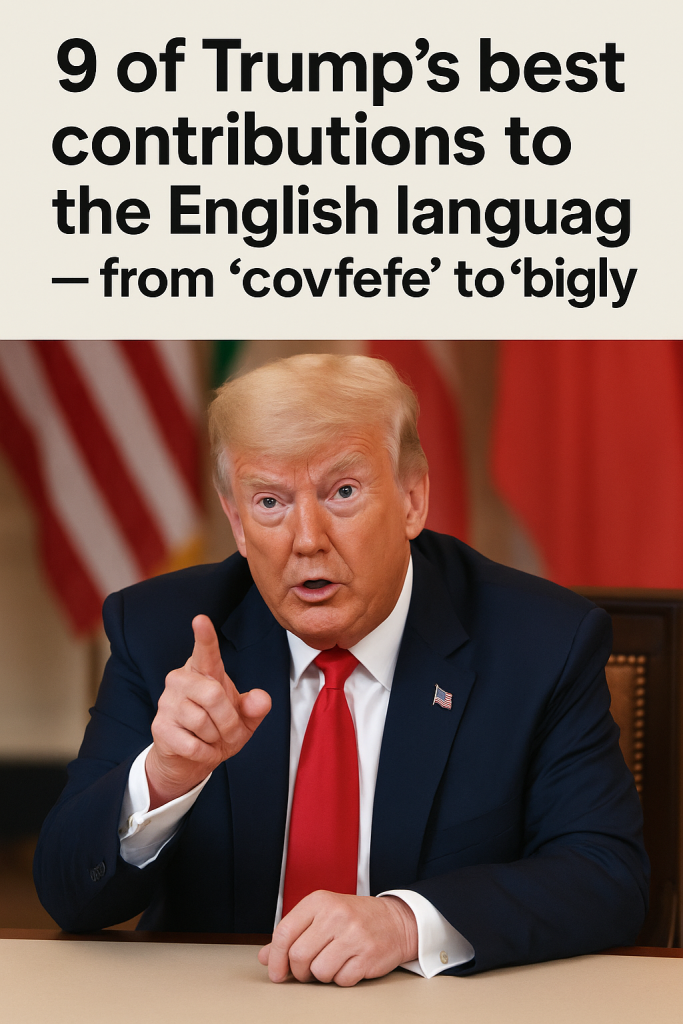Donald Trump’s impact on politics and culture is undeniable, but beyond his headline-grabbing rallies and controversial policies, the former president has uniquely influenced the English language. Over his years in the public eye, Trump’s distinctive style of communication—marked by unconventional phrases, novel word usages, and memorable misspellings—has left an indelible mark on everyday speech and social media lexicons alike.
Here, we explore nine of Trump’s best contributions to the English language that continue to captivate linguists, meme-makers, and the public alike, from the infamous “covfefe” to the somewhat puzzling “bigly.”
1. Covfefe
Perhaps Trump’s most famous linguistic mystery, “covfefe” originated from a 2017 Twitter post that abruptly ended with this jargon-like term. Although never clarified officially, “covfefe” has become a cultural phenomenon—used humorously to indicate confusion, typo, or secret code in political discourse.
2. Bigly
Commonly heard in speeches, “bigly” sparked debate about whether it was a humorous mispronunciation or an actual adverbial form meaning “in a big manner.” Regardless, it became emblematic of Trump’s distinct oratory style and entered informal English as a playful way to say “really” or “significantly.”
3. Fake News
While the phrase predates Trump’s presidency, he popularized and weaponized “fake news” to describe media coverage he deemed biased or inaccurate. It has since become a global catchphrase representing skepticism toward traditional journalism and political spin.
4. Witch Hunt
Trump’s frequent use of “witch hunt” to characterize investigations against him revitalized this term from its historical roots, embedding it firmly in modern political vernacular as shorthand for perceived unjust persecution.
5. Very Stable Genius
Originating from a self-description Trump tweeted in 2018, “very stable genius” has taken on a life of its own in popular culture, often used ironically to comment on grandiose self-praise or questionable assertions of intelligence.
6. Yuge
Trump’s signature pronunciation of “huge” as “yuge” became a hallmark of his speaking style—embracing it as a memorable, playful twist that fans and critics alike parroted to mimic or mock.
7. Enemy of the People
Reviving an Old English phrase with dark historical connotations, Trump used “enemy of the people” to denounce media outlets and political adversaries, igniting extensive debate about press freedom and political rhetoric.
8. TREMENDOUS
Trump’s penchant for splashing words like “tremendous” in nearly every sentence—with an unmistakable emphasis—has made the word synonymous with his promotional style of communication, suggesting enthusiasm and overwhelming positivity.
9. Drain the Swamp
While not coined by Trump, the catchphrase “drain the swamp” was vigorously adopted and popularized during his 2016 campaign, symbolizing a vow to eliminate corruption in Washington, D.C. It has since become a lasting political slogan.
The combined effect of these phrases illustrates how Donald Trump’s language is not just political rhetoric but a force shaping and enriching contemporary



